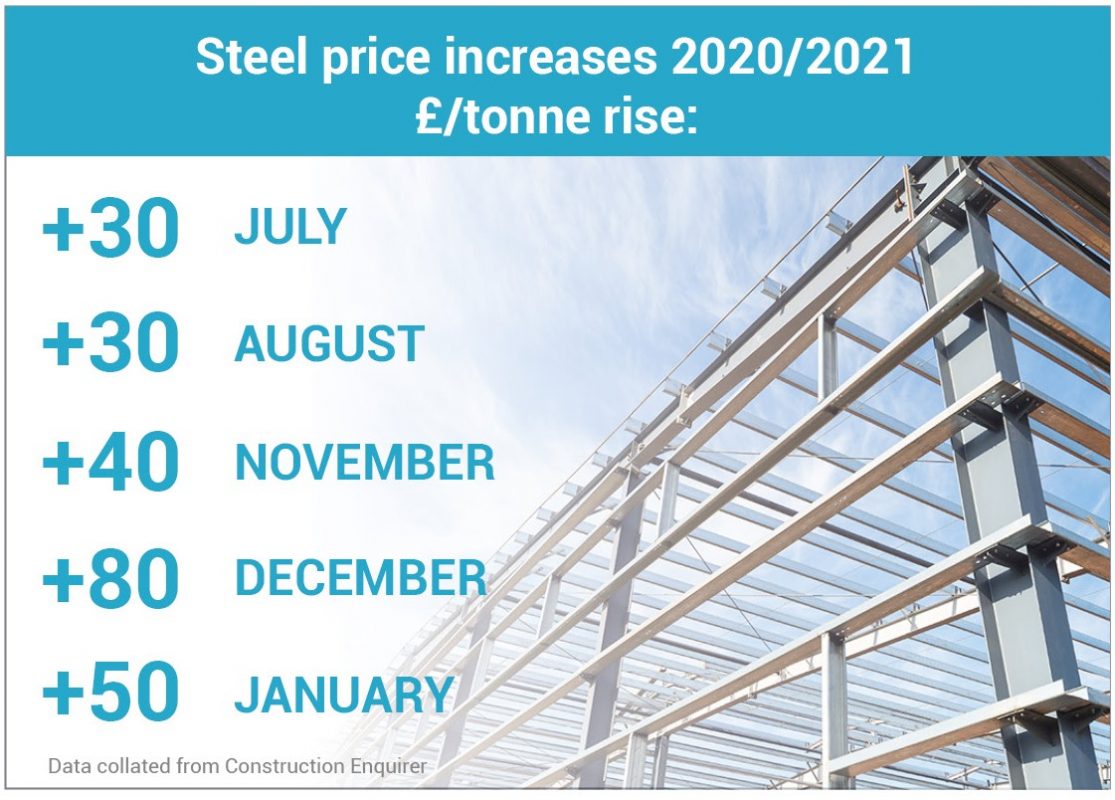
2020 was a challenging year for most industry sectors, not least the construction industry. With the current lockdown still in place it is encouraging to see signs of a light at the end of the tunnel and glimpses of the industry getting back on it’s feet. Results of the 2020 Q3 Federation of Master Builders (FMB) “State of Trade Survey” showed employment figures edging into positive territory for the first time since the beginning of the pandemic. However, there are a number of key areas that have recently been highlighted which will have a significant effect on the construction industry, meaning that companies must have a clear plan for how to adapt to this everchanging landscape.
Key findings focused on the fact that 87% of builders reported a rise in material costs, which is up from 78% during the summer, but only 39% reported a rise in workload over this time (down from 47% in Q2). It is clear to see what impact this could have on companies and especially SMEs in the industry.
The FMB survey also reports “rolling shortages” of key building materials. This is backed up by other industry data including BCIS and publications such as Construction Enquirer, as well as our own experiences of talking to contractors when undertaking our market testing exercises.
Materials such as timber, steel, plaster, and roof tiles, have all been noted to date as well as concrete and tarmacadam set to increase over the coming months. Structural steel prices have just increased again after British Steel announced its fifth price increase since July 2020. Cost of iron ore has nearly doubled since last year which has pushed up steel prices. The speed of the rise has been linked to sharp rises in raw material costs, quotas and scrap availability.
With the UK having left the EU on the January 1st, the ability to combat these shortages, and return the construction industry to a bit more normality may be affected even further due to the disruption in trading arrangements.

Despite the significantly high proportion of builders reporting an increase in material prices, only 30% of builders reported increased fees for the work they carry out. This means that these significant price increases are not being felt across the entire supply chain, with main contractors taking the bulk of the impact, which can have knock on effects on quality and also, put contractors at greater financial risk which is not good for them and the employer.
As the clients trusted advisor, we know how important it is to stay ahead of these market trends and our teams have the relevant industry knowledge and training needed to advise clients from the outset with all aspects of their projects.
Our experienced Quantity Surveyors and Project Managers can provide early cost, programme and procurement advice that is robust and relevant to both Private and Public sector clients across all of the key industry sectors. We become an integral member of the design team, investigating alternative material solutions within designs, undertaking early value engineering, advising on the most suitable procurement route: programme advice including any long lead times that may be expected all of which come together to provide a service that is altogether more pro-active rather than reactive.
